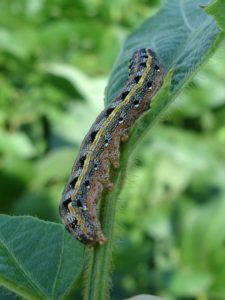
There is nothing worse than a lawn pest. In fact, getting a hold of your armyworms can be a massive hurdle and cumbersome obstacle.
There is nothing worse than a lawn pest. In fact, getting a hold of your armyworms can be a massive hurdle and cumbersome obstacle. Don’t let these armyworms march on your lawn with these easy tips and tricks you can utilize today. Here are some important things to know when it comes to fall armyworms.
What Exactly Are Armyworms?
Before getting into the nitty-gritty of controlling the armyworms on your lawn, let’s first examine what they are and how they can ultimately affect your lawn overall. Firstly, armyworms are quite destructive pests that tend to consume agricultural crops. This means they typically prefer turf grasses like Bermuda, Fescue, Rye, and even Bluegrass. As a result, it’s important to take control of these pests to encourage lawn growth and have a nice lawn overall.
Signs You Have Armyworm Damage
The signs of armyworm damage are pretty evident. In fact, noticing the little signs can help prevent long-term damage to your lawn. But, once you notice the damage, it may be too late. Preventing armyworms from wreaking havoc on your lawn becomes increasingly important for homeowners looking to enjoy their laws and keep them healthy all year long.
New Sod And Armyworms
Fall armyworms are extremely common in new sod. In fact, in our area, it’s quite common to see armyworms wreaking havoc on lawns all over. What happens is that the eggs end up being located on the sod already and then, they subsequently hatch once the sod is laid. This means they eat the sod as it turns brown and then the water homeowners will pour just exacerbates the problem.
Bottom Line
At the end of the day, it can be very challenging to tackle an armyworm infestation. In fact, these pests are quite difficult to control which is why it’s so important to properly maintain your lawn and keep the sod healthy and well-maintained all year long. Doing so can help you avoid the headaches and hassle associated with dealing with an armyworm infestation in your lawn. Having a healthy lawn can be a lot easier than you think with proper maintenance techniques and methods in place. Armyworms are quite pernicious and handling them with care and being proactive about handling them can make all the difference.
